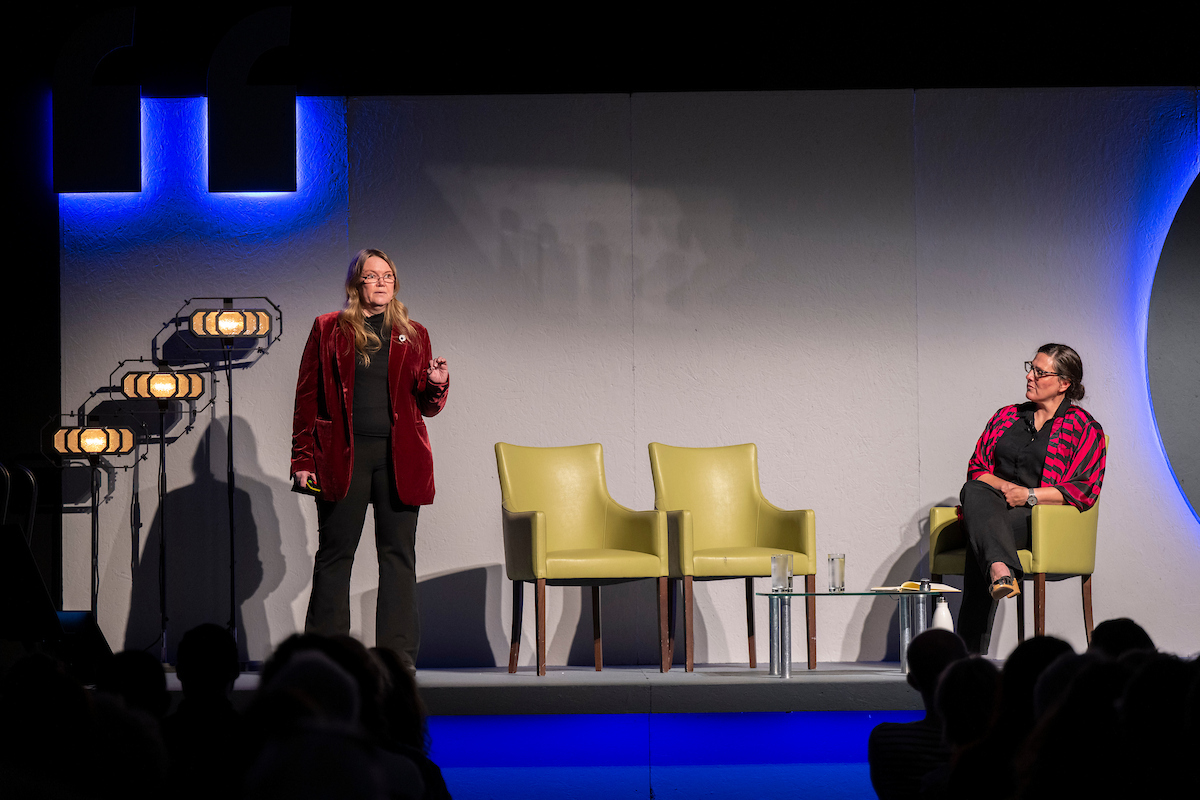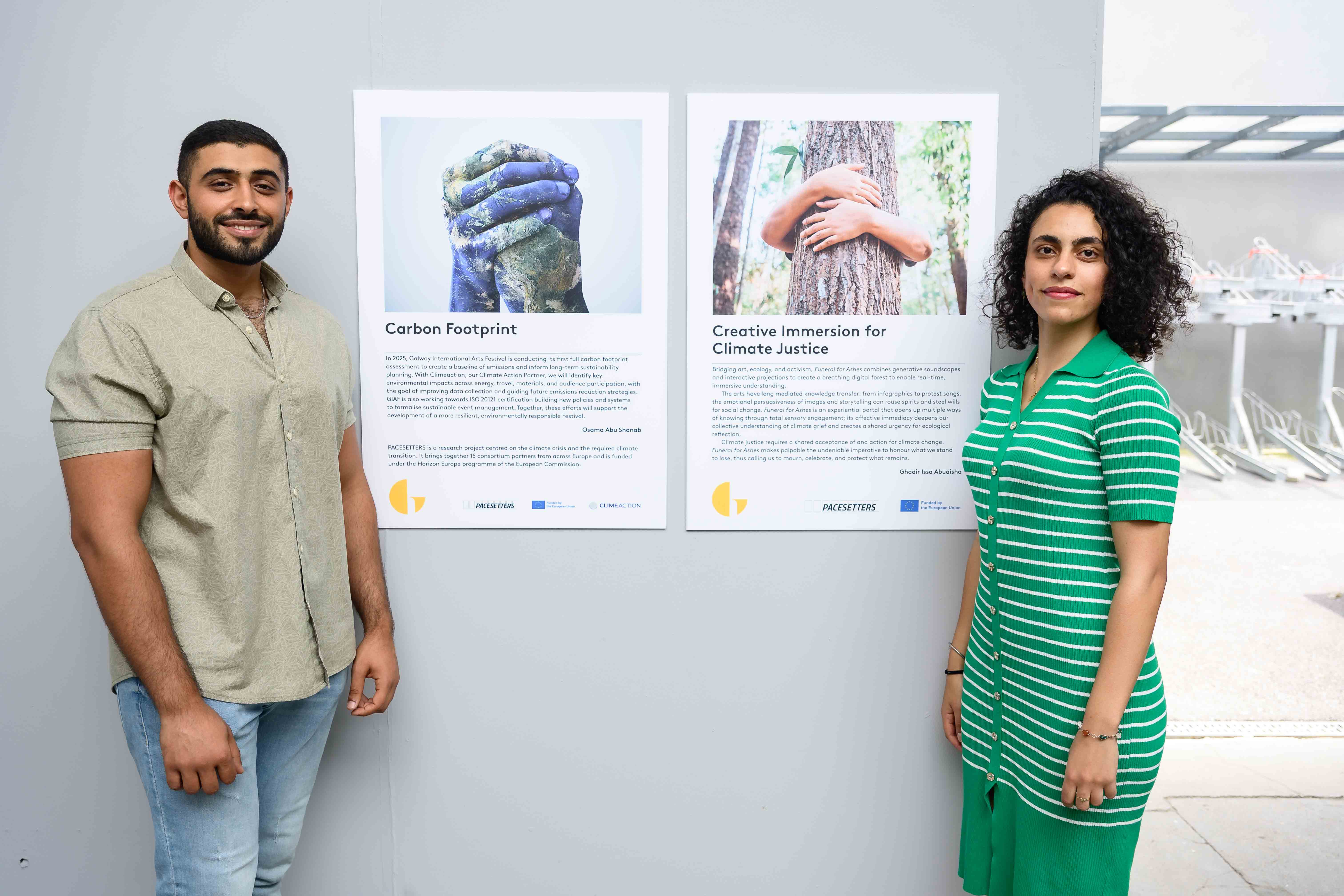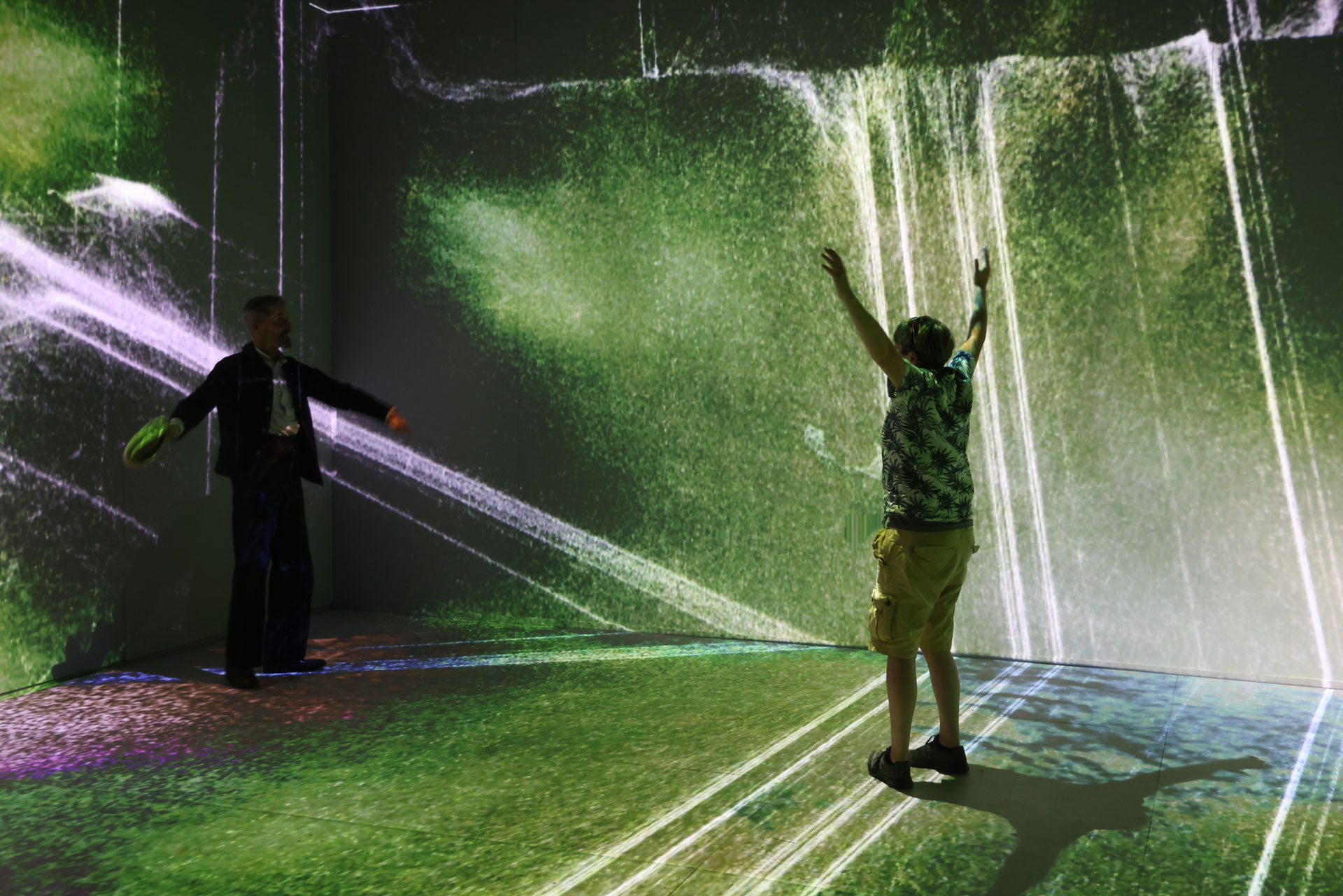Through its partnership with PACESETTERS, and with technical support from sustainability consultants Climeaction, the festival is undertaking its first full carbon footprint assessment, aligned with the Greenhouse Gas Protocol, to create a baseline of emissions from 2024 data and inform long-term sustainability planning. This project will identify key environmental impacts across energy, travel, materials, and audience participation, with the goal of improving data collection and guiding emissions reduction strategies in future editions.
In parallel, Galway Climate Transition Lab is working toward ISO 20121 certification, building new policies and systems to formalise sustainable event management. Together, these efforts will support the development of a more resilient, environmentally responsible festival model for the years ahead.
The inauguration of the Galway Climate Transition Lab provided an opportunity to present and engage with the wider stakeholder community in Galway on the ambitions and the proposed approach.
As part of the GIAF 2025 programme, the First Thought Talk series presented a timely exploration of the global climate transition with a lecture titled "Where Are We Now?" Led by Annela Anger-Kraavi—leader of the Climate Change Policy Group at the University of Cambridge and associated partner in the PACESETTERS consortium—the session assessed the current state of climate transition efforts.
Anger-Kraavi connected the progress made so far with her personal experiences and reflected on the critical steps needed to accelerate transformative change. The session concluded with an engaged panel discussion between invited participants on stage and members in the audience.
The second part of the inauguration of the Galway Climate Transition Lab explored the transformative potential of the arts in driving climate action through a masterclass titled "How Art Makes Things Happen: Towards Æffective Climate Action."
Led by Cissi Fu—a political theorist and co-founder of the Political Arts Initiative—the session delved into the dynamic interplay between effects and affects, challenging participants to rethink the boundaries between art, science, and technology. By bridging disciplinary divides, Fu highlighted the creative possibilities that emerge when these fields converge, emphasizing how artistic practice can inspire meaningful and impactful climate transitions.
The installation of Funeral for Ashes
Since November 2024, Galway Climate Transition Lab have been working closely with local artists, Conor Maloney and John Conneely, on a Creative Case Study Funeral For Ashes. During the Galway International Arts Festival, visitors were able to experience the immersive, interactive Funeral for Ashes installation, which honours the Irish ash woodlands that are now at risk of extinction.
Since the 1990s, an invasive fungus has affected ash trees in Europe, arriving in Ireland in 2012, resulting in mass tree death and possible species extinction. This has negatively impacted biodiversity and the climate, and related industries and individuals. The issue of invasive pathogens that destroy native species, such as the Ash Dieback Disease in Ireland, has traditionally fallen outside the scope of artistic and creative inquiry and held within the purview of foresters, ecologists, and agriculturists. This CCS explores the contribution of participatory arts practice-as-research in dealing with the crisis, and how art might play a unique role in imagining possible solutions to drive the transition to new, ecologically safer futures.



